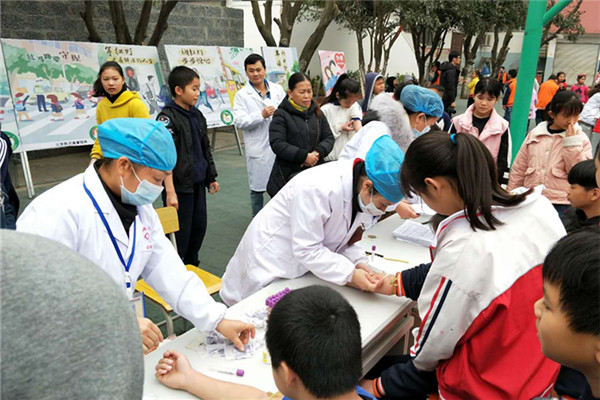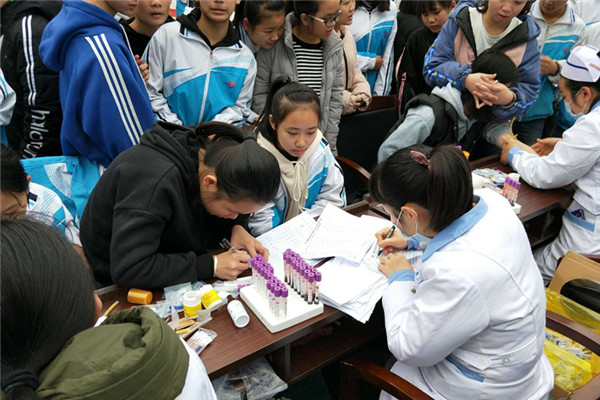Town of longevity joins with BGI-Shenzhen to prevent blood disease
Bama Yao autonomous county in Guangxi Zhuang autonomous region is teaming with Shenzhen in Guangdong province on a poverty-relief program involving the screening and prevention of thalassemia, according to a news conference held in Bama on March 5.
Thalassemia, also known as Mediterranean anemia, is one of the world's most widespread genetic disorders, with about 1.67 percent of the global population carrying the gene.
Babies born with severe thalassemia die before 10 years of age without regular blood transfusions.
 |
|
The implementation and progress made by the thalassemia control project is briefed at a news conference in Bama Yao of Guangxi Zhuang autonomous region on March 5. [Photo provided to chinadaily.com.cn] |
Bama Yao autonomous county, the town of longevity, has implemented the thalassemia screening program into its health-improvement plan, hoping to lift people out of poverty.
In order to improve the quality of life and health of newborns, a screening program is used to detect thalassemia genes with the help of BGI-Shenzhen, the world's largest gene-sequencing research center.
Students and faculty members in all kindergartens, primary schools, and middle schools throughout the county have received genetic detection services free of charge.
 |
|
Students receive genetic testing in Bama Yao autonomous county. [Photo provided to chinadaily.com.cn] |
Among a collection of 57,229 samples, genetic diagnosis results have showed that 14,355 people were carriers of thalassemia, accounting for 25 percent of the total number.
County and township statistics regarding rates of thalassemia will be compiled for the first time in order to provide clues for follow-up measures on prevention and control.
 |
|
Medical workers record the test results for the students in Bama Yao autonomous county. [Photo provided to chinadaily.com.cn] |
Copyright © Hechi Municipal Government. All rights reserved.
Presented by China Daily.
京ICP备13028878号-6






